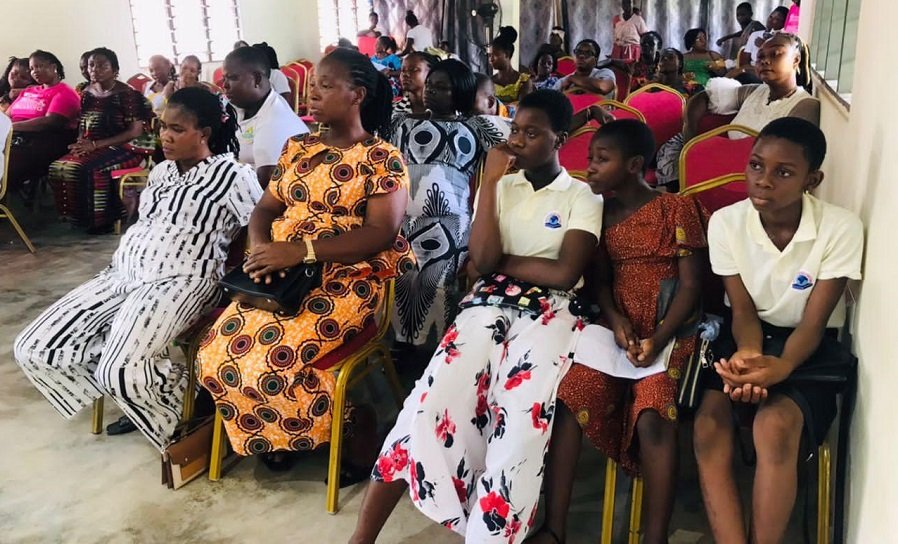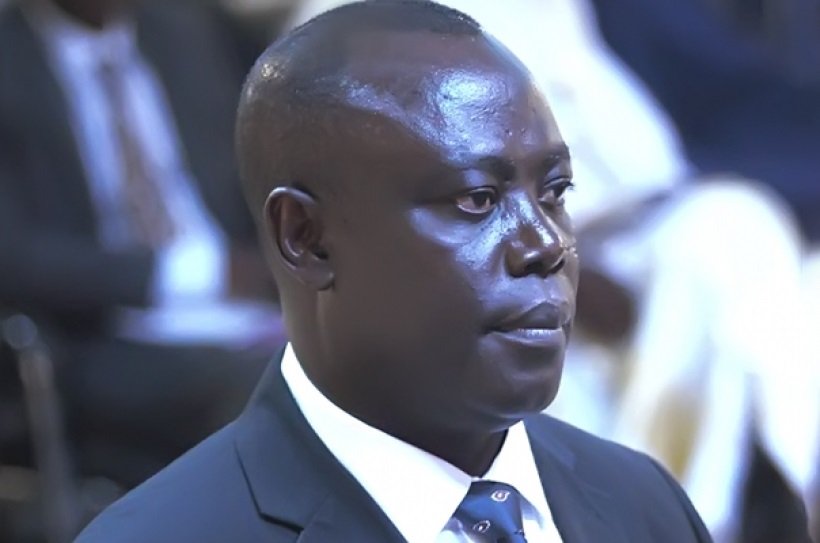Gender
50 women screened for breast cancer in Hohoe

Some participants at the event
A Non-Governmental Organisation (NGO), Forshes Africa Foundation, has organised a breast cancer awareness campaign in Hohoe, and educated residents on the need to ensure regular screening exercise for cancer for early detection and treatment.
The one-day cancer screening exercise, which was under the theme: “Early detection save lives”, saw 50 women screened for the disease, and those who were suspected of early development of cancer were referred to the Volta Regional Hospital at Hohoe for further medical examination.
Speaking at the programme, the Project Manager of Forshes Africa Foundation (FAF), Pastor Nana Jones Boame, stressed the need for women who were mostly victims of breast cancer to at all times take proactive measures to ensure they were safe from the disease.
Referencing Proverbs 27: 12 of the Bible which read “the prudent see danger and take refuge, but the simple keep going and pay the penalty,” Pastor Boame emphasised the need to be cautious and take preventive actions to avoid harm.
He explained that in the context of breast cancer, early detection through screening was a wise and proactive step to potentially save lives through early diagnosis and treatment.
According to him, it was important for breast cancer survivors both male and females to share their experiences in order to offer hope to newly diagnosed breast cancer patients, saying breast cancer also affects men but was only prevalent among women.
An Oncology Nurse Specialist at the Volta Regional Hospital, Mr Jonas Ntikie Njibe, explained that breast cancer simply occurred when cells in the breast grew uncontrollably, which could affect men and women but commonly found among women, therefore it was important for men to also screen and know their breast cancer status.
Mr Njibe said there was the need for people to adopt healthy lifestyles to reduce cancer, including regular exercise, maintaining a healthy weight and eating balanced diet which were crucial means to reduce cancer in the society.
From Samuel Agbewode, Hohoe
Gender
Naa Ayele Osabu leads initiative to groom teenagers

Naa Ayele Osabu
An initiative to inspire the next generation, especially teenagers, by indulging them in after-school activities and programmes, is set to be launched on Saturday, November 30, 2024.
It would be launched by the Ga Mantse, Nii Tackie Teiko Tsuru II.
Dubbed, “Heal the world/Make it a better place”, the initiative undertaken by a youth based non-governmental organisation, would involve teenagers aged 11-17 years and selected from schools in the catchment area.

Speaking to The Spectator, Naa Ayele Osabu, the lead of the initiative, said it targeted kids in the Ga communities because there was a high prevalence rate of teenage pregnancy and school dropouts in those communities.
Additionally, she explained that with the introduction of the after-school programmes and activities such as karate, arts and crafts, the kids would have an experience that fostered discipline, sparked creativity, and develop their mental capacity to become more productive in their communities.
Furthermore, Naa Osabu said experts and professionals in respective programmes would be available to enrol participants and engage them.
The initiative, she said, was a long-term project to roll out in many other communities globally and therefore urged all stakeholders to support to ensure its successful implementation.
Naa Osabu, who owns Ayele Kelewele (a local food restaurant) has had one of the most challenging experiences as a child. “It’s during these tough times that I figured it would be best to make an impact in the society while the business is yet to blossom, hence this initiative.”
“Being a Ga girl, I know the challenges a lot of these young kids face on daily basis. This project will give these kids in the Ga community an opportunity that will, equip them with skills, spark their creativity and achieve the dreams they never thought will be possible,” she stated.
BY BENJAMIN ARCTON-TETTEY
Gender
Data on awareness, late presentation of breast cancer cases worrying — Frimpong-Manso Institute

Rev Prof Paul Frimpong-Manso
The Frimpong-Manso Institute has described as worrying prevailing data showing the gap in awareness and late presentation of cases at healthcare facilities by breast cancer patients.
It said most women in Ghana present breast cancer at advanced stages (III or IV), largely due to lack of awareness, cultural beliefs (beliefs in traditional medicine) and limited access to healthcare facilities.
In a statement copied to The Spectator, it stated that the delay in the detection and treatment of breast cancer had greatly reduced the survival rates of patients, adding that the high cost of diagnosis and treatment such as surgery, chemotherapy, radiotherapy presents a significant barrier for many women.
It said even though the National Health Insurance Scheme (NHIS) in Ghana covers some aspects of cancer care, there persists a significant gap in financing the management of the condition.
It said breast cancer was a significant public health concern in Ghana, as it is in many parts of the world with ongoing efforts to improve detection, treatment and survival outcomes.
According to the Institute, in 2020, the Global Cancer Observatory (GLOBOCAN) estimated that Ghana reported around 4,600 new cases of breast cancer, with a mortality rate of approximately 2,055 deaths annually.
“This type of cancer continues to be the most commonly diagnosed among women with increasing incidence due to several factors, including lifestyle changes, urbanisation and improved detection methods,” it added.
It said in Ghana, breast cancer tends to affect younger women with many cases diagnosed in women under 50, unlike women in developed countries.
On treatment, options for breast cancer patients in Ghana include surgery, chemotherapy and somewhat limited radiotherapy and hormonal therapies saying there was growing recognition of the need for palliative care, especially for patients with advanced-stage cancer.
Notwithstanding, it said, there were still ongoing efforts to improve care for breast cancer patients.
“Both government and NGOs continue to engage communities on awareness of the disease through media campaigns and community outreach programmes,” it added.
It added that efforts were being made to train healthcare professionals, improve diagnostic tools, and build infrastructure geared towards breast cancer care.
By Jemima Esinam Kuatsinu







